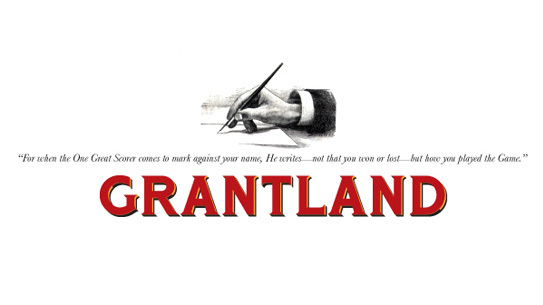It all happened so fast.
Over the course of a weekend, Grantland went from a trend-setting sports and pop culture site to a reliquary of quality sportswriting. ESPN shut down Grantland with immediate effect on Friday. And if readers visit Grantland.com right now, they’ll see this archive page.
Former Editor-in-Chief Bill Simmons isn’t listed in the Contributors section and if you want to find his Grantland work, you have to do a name search and some digging through the site. However, if you’re interested in locating it, the link is here.
As one would expect, tributes to the site were flowing throughout the weekend. A couple of the notable longform ones on social media came from Jonah Keri and Mark Titus and there were dozens more heartfelt farewells. Interim Editor-in-Chief Chris Connelly also finally agreed to an interview with Sports Illustrated after months of stonewalling. In those wide-ranging remarks are several allusions to what one might argue was Grantland’s doomed fate after Simmons and ESPN parted ways, specifically the economics of the site amidst ESPN’s recent struggles.
ESPN will be honoring all of the contracts of Grantland personnel and it’s believed the sportswriters will stay on board and continue to work on various ESPN platforms. The Grantland name and brand may even be resurrected at some point down the road.
Nevertheless, in the Grantland post-mortem it’s safe to say that we’re never going to see anything like this again. Grantland was a first-of-its-kind experiment with the self-proclaimed worldwide leader in sports venturing into pop culture. ESPN writing articles about movies and television and pro wrestling? Longform features about sumo wrestling and sled dog races? Grantland was home to it all. But it was so uniquely tied to its brainchild that it made little sense for ESPN to continue with a new era. The way Grantland ended will give serious caution to other companies and how they plan for these affinity sites in the future. One might expect for them to be much more company-driven and less personality-driven. Wherever we go from here, hopefully a home for that kind of writing exists again somewhere. Not just to survive, but thrive.

